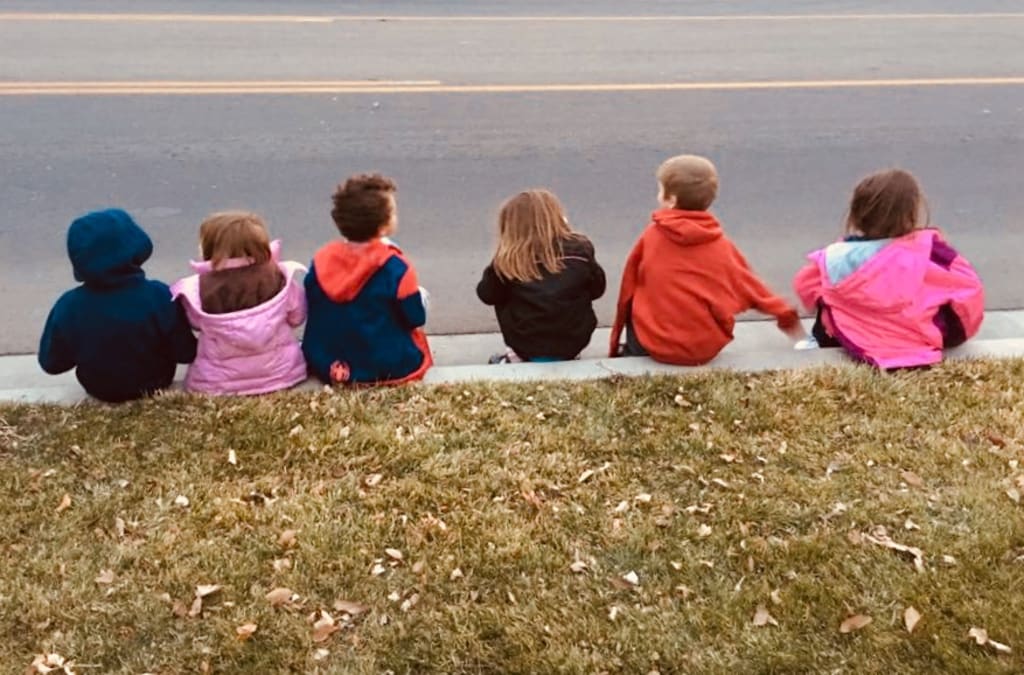Top 5 Ways to Support Foster Families
Ideas for Making the World a Better Place

In the US, there are millions of children in foster care every year, and a vastly inadequate number of foster families. Understandably, not everyone can become a foster parent, but you may be wondering: isn't there still something I could do?
The answer is yes! Here are five ways you can help:
1. Offer to babysit.
This is always appreciated, especially so when the family has both biological or adopted children AND foster children. Court dates are an ongoing struggle for foster kids, added on to visits with the parents (if there are any), and therapy, which is a normal staple in the life of a foster kid. If you know a foster parent, offer to babysit the bio kids while they take foster kids to these appointments. Offer to babysit occasionally just to give them a break (though the laws on who can babysit foster kids and where vary from state to state, the foster parents will be able to fill you in!).
This is a huge relief and blessing to foster parents. It will always be an appreciated offer.
2. Prepare your own children ahead of time.
This doesn't have to be a scary conversation, but if you have children of your own, they should be prepared before they meet foster children. Foster children have trauma and life experiences that will be different and abnormal; sometimes frightening to hear about. Explain this in a way your child can understand so that they can be sensitive and not startled when they meet these new kids.
3. Respect confidentiality.
What information can be shared about a foster child's family situation or past can be very delicate and, at times, limited. Be understanding of this when talking to your foster parent friend. They aren't trying to withhold information from you! They are just legally bound NOT to tell you certain things. Trust me, it's hard enough for them to remember what can be said about each child. They don't need incessant pestering about it.
4. Ask what a foster child needs.
If you have a child of a similar age, or have leftover stuff from when they were that age, or basically if you can pitch in at all, ask if there is a need. Foster kids often go to their first placement with practically nothing. My baby brother came to us with nothing but a pacifier and a diaper. In these cases, anything can help. Shoes, some clothes or toys—just go ahead and ask the foster parent. Foster parents are grateful for anything to help make the child's and their own transitions easier.
5. Do not judge!
This pertains to the parents and the children. Many times, when people see a child behaving poorly in public, they immediately blame the parents and criticize their parenting. They even give suggestions of what the parents could do better, and this is without knowing a single thing about the family. Do not do this!
This is not to say you should turn a blind eye to blatant cruelty; treatment of a child that qualifies as neglect or abuse MUST be reported. I am talking about temper tantrums and other forms of acting out. You just don't know what is going on in the child's life, and especially if you know they're a foster child. Don't criticize the foster parents. The children have so much trauma in their lives, they just don't know how to deal with it.
One time, my mom and I took our new foster girls to the store because they didn't have enough clothes or shoes. During this trip, the three-year-old started having a screaming, crying meltdown because she couldn't wear the shoes until we bought them because they were still in the packaging. She was crying for her mommy, and there was nothing we could do but assure her we would buy the shoes and wait for her to stop crying. This wasn't because of my mom's bad parenting, but because this little girl had so much trauma and had not learned she could trust adults to take care of her.
Passing judgement makes it more difficult for the parents, and then, as a result, more difficult for the children. Be understanding!
Finally...
You can find community-specific needs by reaching out to foster families near you or looking up your local charity programs. Supporting growing children prepares them to be well-adjusted adults. There is always a way to help!






Comments
There are no comments for this story
Be the first to respond and start the conversation.